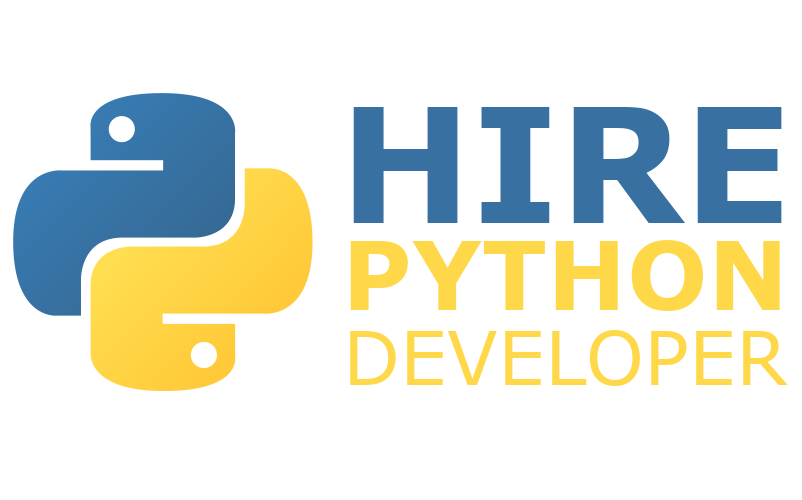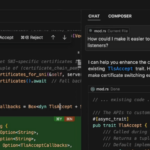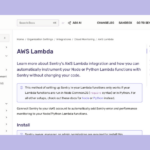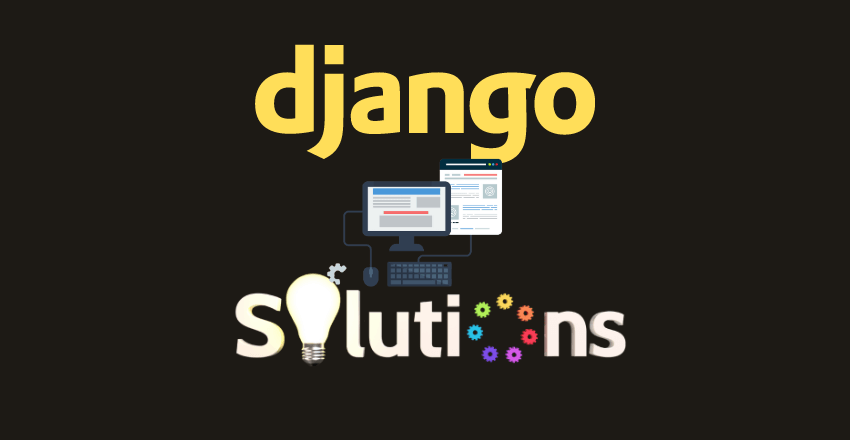 Python Django development has revolutionized the web development industry. The Django framework provides developers with a powerful toolset to build efficient and scalable web solutions. With a plethora of in-built features and components, the framework enables developers to build robust web applications in a matter of weeks, saving both time and money.
Python Django development has revolutionized the web development industry. The Django framework provides developers with a powerful toolset to build efficient and scalable web solutions. With a plethora of in-built features and components, the framework enables developers to build robust web applications in a matter of weeks, saving both time and money.
Our company specializes in providing top-notch Python Django development services. Our team of experts has extensive experience in building web solutions with Django, utilizing best practices and coding standards to deliver seamless web performance.
Building Web Solutions with Python Django
Python Django is a powerful and versatile framework that can be used to build efficient and scalable web solutions. The framework includes several components and features that make it ideal for web development. Here are some of the most important features of Python Django:
- Object-Relational Mapping: Django’s Object-Relational Mapping (ORM) system allows developers to interact with databases using Python code, without having to write any SQL. This feature simplifies database management and makes it easier to change database structures.
- Admin Interface: Django provides a built-in admin interface that can be used to manage site content, users, and permissions. This feature is great for content-heavy sites and can be customized to fit the needs of specific projects.
- URL Routing: Django’s URL routing system provides a way to map URLs to specific views or templates in an application. This feature simplifies URL management and makes it easier to create complex web applications.
- Template Engine: Django includes a powerful template engine that allows developers to create dynamic and responsive web pages quickly and easily.
Here’s an example of how to create a simple web application using Python Django:
# Define the view function
def hello(request):
return HttpResponse("Hello, world!")
# Define the URL pattern
urlpatterns = [
path('hello/', hello),
]This code defines a view function called “hello” that returns a simple “Hello, world!” message. It also defines a URL pattern that maps the URL “hello/” to the “hello” view function. This is just a simple example, but it illustrates the basic structure of a Python Django web application.
Overall, Python Django is a powerful and flexible framework that is ideal for building web solutions of all types and sizes. Its many features and components make it easy to develop complex applications quickly and efficiently, while also providing a high level of security and scalability.
Expert Python Django Development Services
At our company, we offer expert Python Django development services to help our clients build robust and efficient web solutions. Our development team has extensive experience in working with the Django framework to create secure and scalable web applications.
We understand the importance of staying up-to-date with the latest industry trends and advancements in Python Django development. Our team regularly attends conferences and training sessions to ensure that we are providing the best possible services to our clients.
In addition to our technical expertise, we pride ourselves on our ability to understand our clients’ unique needs and provide tailored solutions to meet those needs. We value transparent communication and collaboration to ensure that our clients are satisfied with the end result.
Our portfolio of successful Python Django development projects includes e-commerce platforms, content management systems, and custom web applications. We are committed to providing top-notch services to help our clients achieve seamless web performance and achieve their business goals.
Creating Robust Web Applications with Python Django
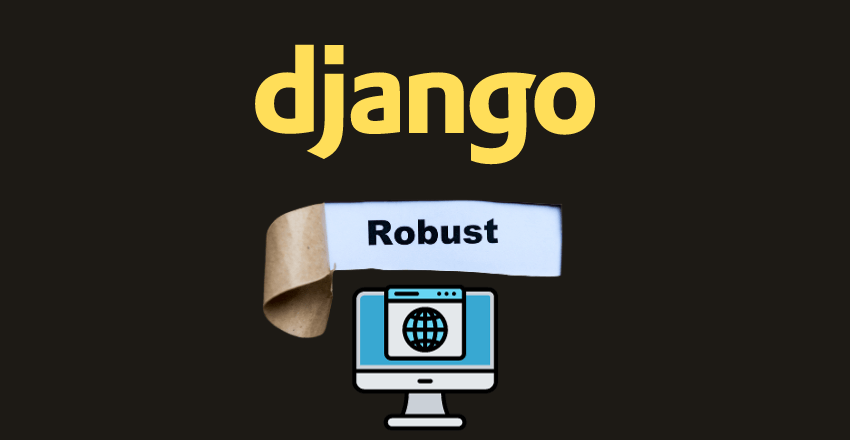
Python Django is a powerful web development framework that allows developers to create robust and secure web applications. With built-in security features and best practices, Django offers a reliable solution for creating high-performance web applications.
One of the key features of Django is its object-relational mapping (ORM) system, which allows developers to interact with databases using Python objects. This makes it easy to create, read, update, and delete data in a database without writing complex SQL queries.
| Django Code | SQL Query |
|---|---|
| Book.objects.filter(author=’Jane Austen’) | SELECT * FROM books WHERE author=’Jane Austen’; |
In addition to its ORM system, Django offers a wide range of security features to protect web applications from threats such as SQL injection, cross-site scripting (XSS), and cross-site request forgery (CSRF). For example, Django includes a built-in CRSF protection middleware that generates a unique token for each form submission and verifies it on the server before processing the request.
“Django’s built-in security features and best practices provide a reliable solution for creating high-performance web applications.”
Django also offers a built-in authentication system that makes it easy to add user authentication and authorization to web applications. By default, Django’s authentication system includes support for basic user registration, login, and logout functionality, with support for password reset and email verification built-in.
Overall, Python Django is a great choice for developers looking to create robust and secure web applications. Its built-in security features, ORMs system, and authentication features make it a reliable and efficient option for building high-performance web applications.
Comparing Python Django with Other Frameworks
Python Django development has gained popularity due to its ease of use, security features and rapid development capabilities. However, there are alternative web development frameworks that offer similar features and functionalities. In this section, we will compare Python Django with other frameworks and explore their unique strengths and weaknesses. Let’s take a look at some code examples in Python Django and other frameworks.
Ruby on Rails
Ruby on Rails is another popular web development framework that shares similarities with Python Django. Both frameworks are designed to be scalable and provide security features that make them ideal for web development. In Ruby on Rails, the following code can be used to create a new model:
Example code in Ruby on Rails:
Command Description rails generate model Book title:string author:stringCreate a model named “Book” with two fields, “title” and “author.”
Similarly, in Python Django, the following code can be used to create a new model:
Example code in Python Django:
Command Description python manage.py startapp bookstoreCreate a new app named “Bookstore.”
Both frameworks offer a quick and easy way to create new models and fields for database management. However, Python Django has the added advantage of providing a built-in administration interface that allows for easy management of database content.
Node.js
Node.js is a popular JavaScript runtime environment that allows for the development of web applications using JavaScript. It is often used in conjunction with web frameworks such as Express.js to create scalable and efficient web applications. In Node.js, the following code can be used to create a new route:
Example code in Node.js:
Command Description app.get('/books', function(req, res) { ... })Create a new route for the URL “/books” that handles GET requests.
Similarly, in Python Django, the following code can be used to create a new URL endpoint:
Example code in Python Django:
Command Description urlpatterns = [ path('books/', views.BookList.as_view()), ]Create a new URL endpoint for the URL “/books/” that renders a BookList view.
Both frameworks offer a way to create new routes and endpoints for web applications. However, Python Django has the added advantage of providing built-in support for URL routing and view rendering, making it easier to manage and organize complex web applications.
Python Django is a versatile and powerful web development framework that offers a wide range of features and functionalities. While there are other frameworks that offer similar capabilities, Python Django’s ease of use, security features and rapid development capabilities make it an excellent choice for web development projects. By using code examples and referencing industry trends, we have compared Python Django with other frameworks and explored their unique strengths and weaknesses.
Python Django Development Best Practices

When it comes to developing web solutions, adhering to best practices is crucial for ensuring efficient and scalable code. Here are some best practices for Python Django development:
- Follow coding standards: Adhering to coding standards ensures that your code is readable, easily maintainable, and conforms to industry standards. The PEP8 Python style guide is the recommended standard by the Django community.
- Use virtual environments: Virtual environments allow you to isolate your Python environment and its dependencies from other projects. This ensures that your project runs on the correct versions of Python and any libraries it requires. The virtualenv and pip packages are commonly used for this purpose.
- Write comprehensive tests: Comprehensive testing ensures that your code works as expected and can identify any issues early on. Django provides a robust testing framework that allows you to write both unit and integration tests. Use coverage tools to ensure that your tests cover all code paths.
- Optimize database queries: Django provides a powerful ORM that abstracts away the details of the underlying database. However, it’s important to write efficient queries to avoid slow page load times. Use the built-in query optimization tools provided by Django, such as select_related and prefetch_related.
- Secure your web application: Django provides several built-in security features, such as password hashing, CSRF protection, and SQL injection prevention. Use these features to ensure that your web application is secure and protected against common attacks.
- Implement caching: Caching frequently accessed data can greatly improve the performance of your web application. Django provides several caching backends, such as memcached and Redis, that can be used to implement caching.
By following these best practices, you can ensure that your Python Django development project is efficient, scalable, and secure.
Implementing Advanced Features with Python Django
Python Django development offers a wide range of advanced features that can be implemented in web development projects. Developers can leverage these features to create robust, secure, and scalable web applications. Let’s look at some of the advanced features offered by Django.
Authentication and Authorization
Python Django provides built-in authentication and authorization systems that can be customized to suit specific project requirements. The authentication system handles user authentication, while the authorization system controls access to various resources within the application.
Here’s an example of how to create a custom user model in Django:
from django.contrib.auth.models import AbstractUser
class CustomUser(AbstractUser):
passAPI Development
Django REST framework is a popular toolkit used for building APIs in Python Django. It provides a set of powerful features, such as serialization, authentication, and pagination, that make building APIs easier and faster.
Here’s an example of how to create a simple API view in Django:
from rest_framework.views import APIView
from rest_framework.response import Response
class HelloView(APIView):
def get(self, request):
return Response({'message': 'Hello, World!'})Deployment Strategies
Django provides several deployment options, such as Heroku, AWS, and Google Cloud, that make it easy to deploy web applications to the cloud. These platforms offer features like auto-scaling, load balancing, and database management that ensure the application remains available and performant even under heavy traffic.
Here’s an example of how to deploy a Django application to Heroku:
- Create a Heroku account.
- Install the Heroku CLI.
- Create a new Heroku app.
- Configure the app settings.
- Deploy the application.
Python Django development offers a range of advanced features that can be used to create efficient and scalable web applications. Developers can leverage the built-in authentication and authorization systems, the Django REST framework for API development, and deployment options like Heroku to create top-notch web solutions. At our company, we have a team of expert Python Django developers who can assist in creating custom web solutions that meet your specific business needs.
Enhancing Web Performance with Python Django
Python Django development offers several techniques and strategies to optimize web performance and provide a seamless user experience. By utilizing the caching mechanisms, database optimization techniques, and frontend optimization strategies available in Django, developers can significantly improve the performance of their web applications.
One of the key features of Django that enhances web performance is caching. Django provides caching middleware that can cache the whole of a website or specific parts of it, reducing the load on the server and improving page load times. In addition, Django offers advanced caching features, such as cache versioning and cache partitioning, which provide added flexibility and control over caching.
| Example: | {% cache 600 sidebar %} …sidebar content… {% endcache %} |
|---|
Django also provides several techniques for optimizing database performance. One such technique is query optimization, which involves reducing the number of queries executed by the application. This can be done by optimizing queries, reducing database calls, and utilizing Django’s built-in query optimization tools.
Another way to optimize web performance in Django is through frontend optimization. Django offers several features that can help optimize frontend performance, such as compressing CSS and JavaScript files, rendering templates more efficiently, and using GzipMiddleware to compress responses before they are sent to the browser.
Overall, Python Django development provides a comprehensive set of tools and techniques for optimizing web performance and creating seamless user experiences. By leveraging the caching mechanisms, database optimization techniques, and frontend optimization strategies available in Django, developers can significantly improve the performance of their web applications and provide a smooth and enjoyable user experience.
Conclusion
Python Django development is an essential tool in creating robust and efficient web solutions. Throughout this article, we have discussed the benefits and features of Django framework, and how it can be used to build scalable web applications. With the expertise of our development team, we have provided top-notch Python Django development services, implementing advanced features and optimizing web performance.
As we have seen, the security and ease of use offered by Django make it an ideal choice for creating web solutions. By comparing Django with other popular frameworks, we can see the strengths and weaknesses of each, and how Django stands out as a versatile and reliable framework. We have also outlined the best practices for Python Django development, highlighting coding standards, testing methodologies, and optimization techniques.
FAQ

Q: What is Python Django development?
A: Python Django development refers to the process of using the Django framework, which is written in Python, to build web applications. Django provides a high-level development framework that simplifies the process of creating web solutions through its built-in features and libraries.
Q: What are the benefits of using Python Django for web development?
A: Python Django offers several benefits for web development, including rapid development, scalability, robust security features, extensive documentation, and a vibrant community. It provides a clean and pragmatic design that promotes efficient and maintainable code.
Q: What features does Python Django offer for web development?
A: Python Django offers a wide range of features for web development, including a powerful ORM (Object-Relational Mapping) for database interactions, automatic admin interface generation, URL routing, template engine, form handling, authentication, and much more.
Q: Is Python Django suitable for large-scale web applications?
A: Yes, Python Django is highly scalable and has been used to power large-scale web applications such as Instagram, Pinterest, and NASA’s website. Its scalability is due to its modular and reusable design, which allows for easy expansion and maintenance.
Q: Can I use Python Django with other programming languages?
A: While Python Django is primarily a Python framework, it can be used in conjunction with other programming languages as part of a larger web development stack. Django provides support for integrating with other technologies through its extensive ecosystem of plugins and extensions.
Q: Are there any notable alternatives to Python Django for web development?
A: Yes, there are several notable alternatives to Python Django, such as Ruby on Rails, Laravel (PHP), and ASP.NET (C#). Each framework has its own strengths and weaknesses, so the choice depends on the specific requirements and preferences of the development team.
Q: What are the best practices for Python Django development?
A: Some best practices for Python Django development include following the DRY (Don’t Repeat Yourself) principle, writing clean and readable code, using version control, writing unit tests, optimizing database queries, and adhering to the Django coding style guide.
Q: How can I optimize web performance using Python Django?
A: Python Django provides several techniques for optimizing web performance, such as caching mechanisms, database optimization, and frontend optimization strategies. By implementing these techniques, you can improve the speed and responsiveness of your web applications.
Q: Where can I find more information about Python Django development?
A: You can find more information about Python Django development in the official Django documentation, online tutorials, forums, and community resources. Additionally, you can reach out to our expert Python Django development team for any specific questions or inquiries.
Lydia is a seasoned technical author, well-versed in the intricacies of software development and a dedicated practitioner of Python. With a career spanning 16 years, Lydia has made significant contributions as a programmer and scrum master at renowned companies such as Thompsons, Deloit, and The GAP, where they have been instrumental in delivering successful projects.
A proud alumnus of Duke University, Lydia pursued a degree in Computer Science, solidifying their academic foundation. At Duke, they gained a comprehensive understanding of computer systems, algorithms, and programming languages, which paved the way for their career in the ever-evolving field of software development.
As a technical author, Lydia remains committed to fostering knowledge sharing and promoting the growth of the computer science community. Their dedication to Python development, coupled with their expertise as a programmer and scrum master, positions them as a trusted source of guidance and insight. Through their publications and engagements, Lydia continues to inspire and empower fellow technologists, leaving an indelible mark on the world of scientific computer science.
